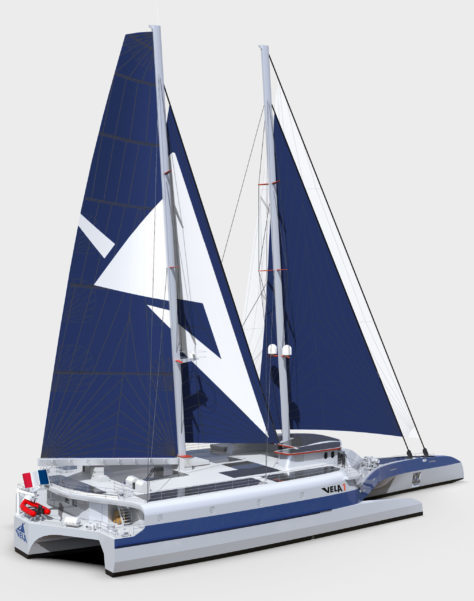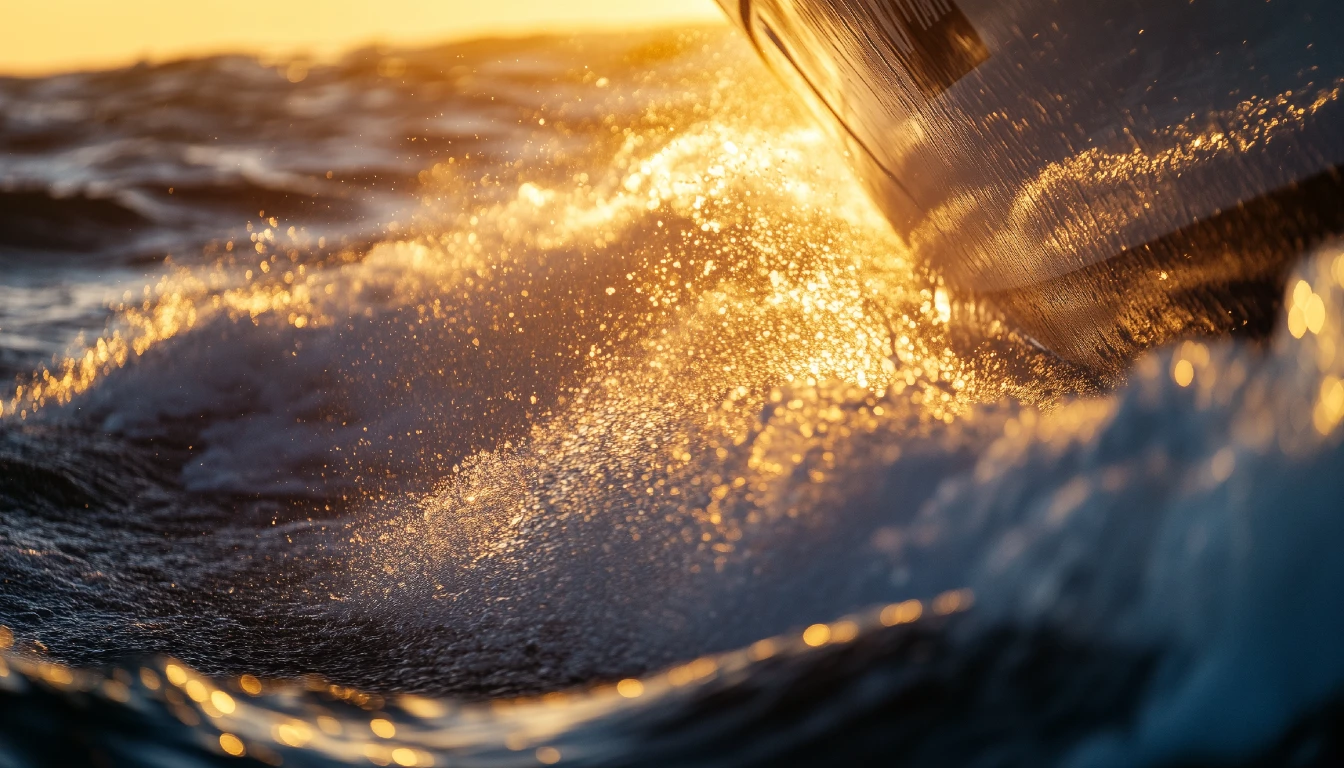Vela, a French company at the forefront of wind-powered maritime transportation, has successfully concluded a funding round, raising €40 million (US$43 million). The investment, led by Crédit Mutuel Impact, 11th Hour Racing, and the French public investment bank BPI, is set to facilitate the construction of Vela’s first sailing cargo trimaran.
Pioneering Sustainable Maritime Transport
The trimaran, designed with sustainability and speed in mind, will be constructed by the Australian shipyard Austal, which won an international tender involving over 30 shipyards. The construction is set to take place in Austal Philippines, located in Balamban, Cebu. The vessel is anticipated to be delivered in the latter half of 2026.
Measuring 220 feet in length, 200 feet in height, and 82 feet in width, the trimaran features over 3,230 square feet of photovoltaic panels, two hydro-generators, and a sail propulsion system developed by MerConcept. The hull, constructed from aluminium, and the carbon mast are designed to optimise speed and durability. With a UMS (Unified Measurement System) of over 1,500, the vessel aims to offer a fast, sustainable transatlantic shipping solution, known as “L’avion des Mers” or “The Sea Plane.”
This initiative leverages technology from offshore racing to ensure efficient transatlantic crossings within 15 days — encompassing loading, crossing, and unloading — powered entirely by wind. The trimaran’s holds will maintain controlled temperatures, making it suitable for high-value cargo, particularly in pharmaceuticals.

Representation of the Vela trimaran.
Ethical Construction and Franco-Australian Collaboration
To ensure ethical labour practices, a Vela representative will be present on-site during construction to monitor working conditions, supplementing the certifications already held by the shipyard. Additionally, 30% of the construction, including rigging, sails, and hydro-generators, will be carried out by French companies.
Michael Fernandez-Ferri, Managing Director and Chairman of Vela, highlighted the significance of this funding round:
“This major fundraising marks a key step in Vela’s development. We are proud to have brought together such a high-quality panel of Franco-American partners who share our ambition to make transport more sustainable.”
Austal CEO, Paddy Gregg, expressed enthusiasm for the partnership: “This vessel will set new speed, reliability, and sustainability standards for transatlantic shipping. We’re proud to contribute to decarbonising the maritime industry and look forward to transforming international cargo transportation for a greener future.”
Launch of First Express Maritime Line Between France and the USA
The trimaran will also mark the inception of Vela’s first maritime line, connecting France’s Atlantic coast with the East Coast of the USA. Operations are set to commence in the second half of 2026. The new line will cater to high-value goods across various sectors, including fashion, artisanal products, wines and spirits, food, and medical supplies. Departure ports in Normandy and New Aquitaine will form part of Vela’s comprehensive network. Vela also plans to introduce at least four additional vessels by 2027-2028, aiming for a departure frequency of one per week.
Support from Financial Partners
Sabine Schimel of Crédit Mutuel Impact underscored the importance of financing sustainable maritime solutions: “We are very proud to back the cofounders of Vela in building this first sailing cargo trimaran and contributing to the emergence of such a French technology field of excellence.”
Jeremy Pochman of 11th Hour Racing added, “This investment in Vela aligns perfectly with our mission of reducing carbon emissions and improving efficiency in global supply chains.”
Jean-Marie Fougeray of Bpifrance emphasized the project’s alignment with the Climate Plan: “Vela addresses the major challenge of decarbonising the maritime sector while offering an innovative, sustainable, and high-quality transportation solution.”
Vela is poised to make waves in sustainable maritime transport, heralding a new era in transatlantic shipping.




